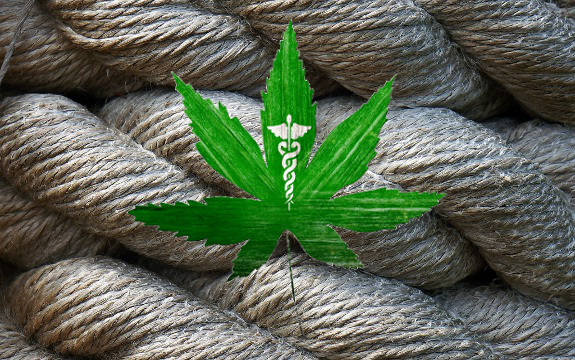Hawaii Makes Use of Hemp as BioFuel, Other States to Follow?

What requires about half the amount of water to be produced when compared to cotton, and requires NO pesticides to grow? Hemp, and Hawaii is already researching the growth of industrial hemp as a bio-fuel with numerous uses. Are other states aiming to follow?
Hawaii Gov. Neil Abercrombie has already signed the bill, S.B. 2175, which authorizes the growth and cultivation of industrial hemp in accordance with requirements established by the 2014 Farm Bill. Hawaii can take advantage of this bill because it had already legalized industrial hemp cultivation in the past.
Due to the Farm Bill, Federal law authorizes state departments of agriculture to create regulations to carry out pilot programs with industrial hemp. Pilot programs include those used to study the growth, cultivation, or marketing of industrial hemp.
Not only could this crop be used to grow a tremendously healthy food source (hemp contains many essential amino acids and also high levels of Omega 3s, along with other nutrients), but hemp can also be cultivated to be used as a cleaner bio-fuel than petroleum as well as a stronger fiber for use in textiles and clothing of all sorts than cotton (not to mention it takes no pesticides to grow, and cotton currently accounts for millions of pounds of pesticide use annually). It can also be used to create hemp plastics that far out-perform petroleum based plastics, and do not harm the environment.
Hawaii’s year-round growing season also makes hemp a very desirable crop for farmers to grow considering the industry’s growth is expected to blossom over the next several years.
Even more exciting is the possibility to use hemp as a crop for phytoremediation.
Read: 10 Great Things About Hemp You Really Need to Know
Since Hawaii and other states, along the Pacific Coast, are arguably being hit harder by radiation fall-out from the Fukushima incident, we should recognize hemp’s promise in repairing soils. The plant has an unusual quality of being able to pull toxins of all kinds, including metal, pesticides, solvents, explosives, and crude oil, and even radiation out of the soil in order to heal it. Hemp plants do this by absorbing the toxins through their roots, leaves, stems, and shoots. It can remove toxins without removing any topsoil, too. The plant is then harvested and safely disposed of.
The final version of S.B. 2175 signed into law by Hawaii legislators offers hope that hemp cultivation can help restore the islands to their previously known pristine state. Scientists at University of Hawaii are looking into the possibility of using hemp for phytoremediation and other uses, including biofuel feedstock as well.
“Hawaii’s environment and economy will benefit from this research,” Gov. Neil Abercrombie said. “Industrial hemp can be used to decontaminate soil and increase the state’s production of biodiesel, therefore reducing our dependency on imported fuel.”
One U.S. biofuel company has already indicated that it sees value in industrial hemp for use in biomass power applications and cellulosic fuels. Others are sure to follow.

Hemp use will benefit both the environment and industry .
and people !!!
Yes of course !
This has been known for years — but, no one wants to be the one to mention hemp – oh how awful. NOT.